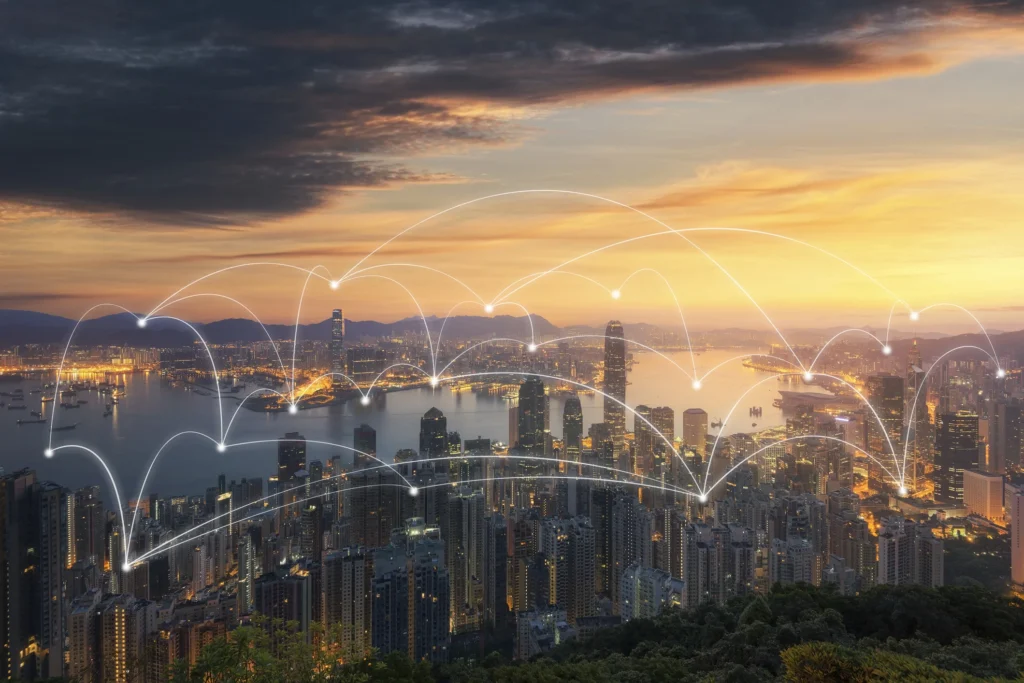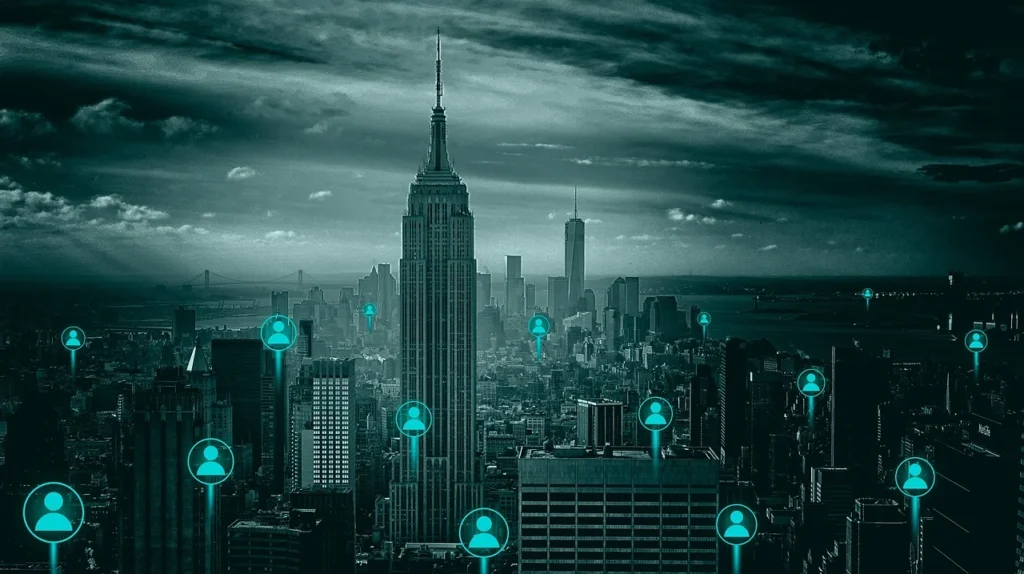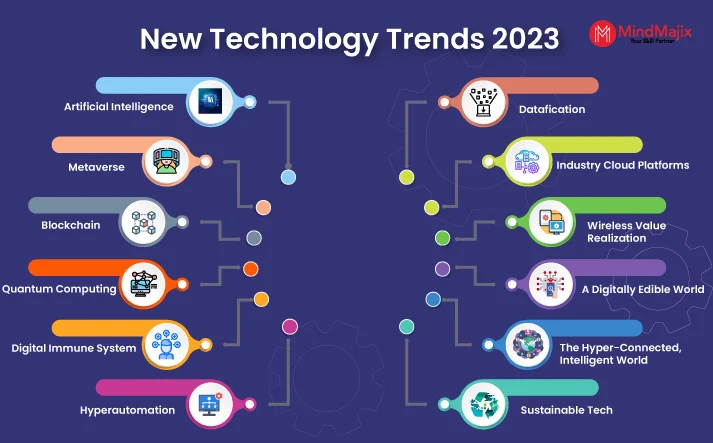The Rise of 5G: What It Means for Consumers and Businesses is a topic of growing interest as the next generation of wireless technology begins to roll out. 5G promises faster speeds, lower latency, and increased connectivity, revolutionizing the way we use and interact with technology. Consumers can expect to see improvements in their mobile experience, while businesses have the potential to unlock new opportunities for innovation and growth. As 5G networks continue to expand, the impact on both consumers and businesses will become increasingly apparent.
The emergence of 5G technology is set to transform the digital landscape for both individuals and enterprises. With its potential for ultra-fast connectivity and seamless integration, 5G has the power to revolutionize the way we communicate, work, and access information. This new era of connectivity brings with it the promise of improved efficiency, enhanced productivity, and a wide range of new possibilities for technological advancement. As the capabilities of 5G continue to unfold, its impact on consumers and businesses alike will become more pronounced.
The Promise of 5G Technology
5G technology represents the next generation of mobile internet connectivity, offering faster speeds and more reliable connections on smartphones and other devices. With 5G, users can expect download and upload speeds that are significantly faster than 4G, enabling seamless streaming, gaming, and video calling. Additionally, 5G technology has the potential to revolutionize industries such as healthcare, transportation, and manufacturing by enabling the Internet of Things (IoT) and powering advanced technologies like driverless cars and remote surgery.
One of the key promises of 5G technology is its low latency, which refers to the time it takes for data to travel from the sender to the receiver and back. This low latency will greatly improve the responsiveness of devices and applications, making activities like online gaming and virtual reality experiences much more immersive and enjoyable. Overall, 5G technology holds the promise of transforming the way we live, work, and interact with the world around us.
Implications for Consumers
For consumers, the rollout of 5G technology means an entirely new level of connectivity and convenience. With faster download and upload speeds, tasks that currently take minutes will be completed in seconds, allowing for seamless streaming of high-definition content, faster downloads of large files, and smoother video calls. The low latency of 5G will also enhance the performance of smart home devices, making them more responsive and reliable.
Furthermore, 5G technology has the potential to unlock new capabilities in augmented reality (AR) and virtual reality (VR) applications, providing consumers with more immersive and interactive experiences. From gaming to shopping to remote communication, 5G technology will empower consumers to do more with their devices and explore new frontiers of connectivity.
Impact on Business Operations
Businesses stand to benefit significantly from the implementation of 5G technology. The faster speeds and increased capacity of 5G networks will enable seamless communication and collaboration, allowing employees to work more efficiently from remote locations. This will be particularly valuable for businesses that rely on real-time data processing and analysis, such as financial institutions, healthcare providers, and logistics companies.
Moreover, 5G technology will open up new opportunities for innovation and growth, particularly in industries that can leverage IoT devices and advanced connectivity. From smart manufacturing to predictive maintenance to enhanced customer experiences, businesses will be able to leverage 5G technology to streamline operations, reduce costs, and deliver new and improved products and services to their customers.
Challenges and Considerations
While the potential of 5G technology is vast, its implementation is not without challenges. One of the primary considerations is the infrastructure required to support 5G networks, including the installation of small cells and the expansion of fiber optic networks. Additionally, there are concerns about the security of 5G networks and the potential for cyber threats, as the increased connectivity and reliance on IoT devices create new vulnerabilities.
Furthermore, there are ongoing discussions about the potential health effects of 5G radiation, although scientific consensus maintains that 5G technology is safe. Lastly, the cost of 5G implementation and the need for spectrum allocation are important considerations for both service providers and businesses looking to adopt 5G technology.
Regulatory and Policy Considerations
The rollout of 5G technology also raises important regulatory and policy considerations. Governments and regulatory bodies play a crucial role in allocating spectrum for 5G networks, ensuring fair competition among service providers, and establishing standards for network security and data privacy. Additionally, there are ongoing discussions about the impact of 5G technology on net neutrality and the potential for new regulations to govern the use of 5G networks.
From a policy standpoint, there is also a need to address issues of digital inclusion and equitable access to 5G technology, particularly in underserved communities. Policymakers must work to bridge the digital divide and ensure that the benefits of 5G technology are accessible to all segments of the population.
Global Adoption and Competition
The race to deploy 5G technology has become a global competition, with countries and companies vying for leadership in the 5G market. From infrastructure investments to spectrum auctions to the development of 5G-enabled devices, there is intense competition to establish dominance in the 5G ecosystem. This global adoption of 5G technology has significant implications for international trade, national security, and technological innovation.
Furthermore, the global adoption of 5G technology has the potential to reshape industries and create new opportunities for economic growth and development. Countries that are early adopters of 5G technology may gain a competitive edge in areas such as smart cities, autonomous vehicles, and advanced manufacturing, while also driving innovation in areas like healthcare, education, and entertainment.
5G and the Internet of Things (IoT)
5G technology is expected to play a pivotal role in the expansion of the Internet of Things (IoT), connecting billions of devices and enabling new applications and services. The high-speed, low-latency capabilities of 5G networks are essential for supporting the massive scale and diverse requirements of IoT devices, ranging from smart sensors to industrial robots to connected vehicles.
As 5G technology becomes more widely available, the IoT ecosystem is expected to experience rapid growth, with implications for industries such as agriculture, energy, and healthcare. From smart agriculture practices to remote patient monitoring to efficient energy management, the combination of 5G and IoT has the potential to drive significant advancements in how we interact with technology and the world around us.
5G and Smart Cities
5G technology is set to be a game-changer for the development of smart cities, offering the connectivity and bandwidth necessary to support a wide range of intelligent infrastructure and services. From traffic management to public safety to environmental monitoring, 5G networks will enable smart city initiatives to collect and analyze data in real time, leading to more efficient and sustainable urban environments.
With 5G technology, smart cities will be able to deploy advanced applications such as connected street lighting, autonomous transportation, and remote public services. This connectivity will not only enhance the quality of life for residents but also create new opportunities for businesses and entrepreneurs to develop innovative solutions for urban challenges.
5G and Enhanced Connectivity
5G technology has the potential to revolutionize connectivity on a global scale, particularly in areas where traditional wired infrastructure is limited. The high-speed, low-latency capabilities of 5G networks can bridge the digital divide and provide reliable internet access to underserved communities, enabling greater access to online education, telemedicine, and economic opportunities.
Furthermore, 5G technology can enhance connectivity in remote and rural areas, supporting initiatives such as precision agriculture, environmental monitoring, and emergency response. The widespread deployment of 5G networks has the potential to create more inclusive and connected societies, driving economic growth and social development across the globe.
5G and Security Considerations
As 5G technology becomes more prevalent, there are important considerations regarding network security and privacy. The increased connectivity and reliance on IoT devices create new vulnerabilities for cyber attacks, making robust security measures essential for protecting 5G networks and the data transmitted across them.
Additionally, there are ongoing discussions about the role of 5G technology in national security and the potential for geopolitical implications, particularly as countries race to establish leadership in the 5G market. Addressing these security considerations will be crucial for building trust in 5G technology and ensuring its long-term success.
| Topic | Explanation |
|---|---|
| Speed | 5G offers significantly faster internet speeds compared to 4G, enabling quicker downloads and smoother streaming. |
| Latency | 5G reduces latency, leading to near-instantaneous communication between devices, which is crucial for applications like autonomous vehicles and remote surgery. |
| Capacity | 5G can support a massive number of connected devices in a small area, making it ideal for crowded events and smart cities. |
| Impact on Consumers | Consumers will experience faster and more reliable internet connectivity, unlocking new possibilities for entertainment, communication, and productivity. |
| Impact on Businesses | Businesses can leverage 5G to innovate and optimize processes, create new products and services, and enhance customer experiences through advanced technologies like IoT and AR/VR. |
The rise of 5G represents a monumental shift in connectivity, offering consumers faster and more reliable internet experiences while empowering businesses to innovate and create new opportunities through advanced technologies.




